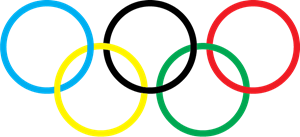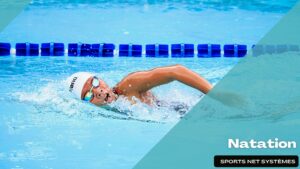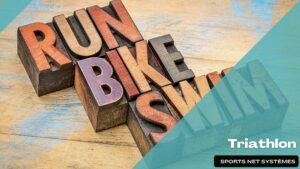 The usefulness of VO2 Max training has been a topic for a few years in the endurance sports world. At the elite athlete level, it is nearly impossible to train an improvement in VO2 Max, and it takes about 10 minutes of training for an athlete to achieve VO2 Max. Cyclists and runners have a large number of competitions that last longer than 10 minutes; swimming has very few. VO2 Max is also extremely difficult to test in the swimming population.
The usefulness of VO2 Max training has been a topic for a few years in the endurance sports world. At the elite athlete level, it is nearly impossible to train an improvement in VO2 Max, and it takes about 10 minutes of training for an athlete to achieve VO2 Max. Cyclists and runners have a large number of competitions that last longer than 10 minutes; swimming has very few. VO2 Max is also extremely difficult to test in the swimming population.
VO2 Max, or the Maximumof Oxygen (O2) that can be consumed while breathing air during exercise at sea level, has always been difficult to measure for swimmers. Cyclists have stationary bicycles that can be precisely calibrated in laboratories while the riders are breathing into gas analyzers, and runners have treadmills, but none of this equipment translates very well to the pool. Many attempts have been made but they have failed to produce useful results. Coaches did what our country does best – improvise, trial & error, and repeat until they created what they felt to be the best approximation of VO2 Max training for their athletes.
Generally, a higher VO2 Max is ideal for elite performance. However, without other components, like great mechanics or exceptional mental toughness, such select physiology can go to waste. Without the aid of analyzing equipment, coaches looked to simpler indicators like achievement of maximum heart rate, blood lactate values and the leveling (or dropping) off of performance during intense training sets. These observations, coupled with an adventurous attitude, were responsible for some of the innovative training we have seen over the last 25 years.
400-1500 M swimmers
Set length: 1500-2000 M
Repeat Distances: 100s & 200s
Rest Interval: Variable, :30-1:30
Example: 400 Broken swim (repeat four times)
1 x 200 dive : 3:00 (going out 400 pace) with a soft kick
1 x 100 push : 2:00 with a supple kick
2 x 50 push : 1:00 (best you can come home) with a hard kick
Add up for 400 M time
1 x recovery swim : 3:00-4:00
200 M swimmers
Set length: 800-1000 M
Repeat distances: 50s & 100s
Rest Interval: Variable, :30-1:30
Example: 200 Broken swim (repeat four times)
1 x 50 dive : 1:30 (going out 200 pace) with a soft kick
1 x 100 push : 2:30 (middle 100 of the 200) with a supple kick
1 x 50 dive : 1:30 (best you can come home) with a hard kick
Add up for 200 M time :03-:04 faster than your goal time
1 x recovery swim : 2:30







